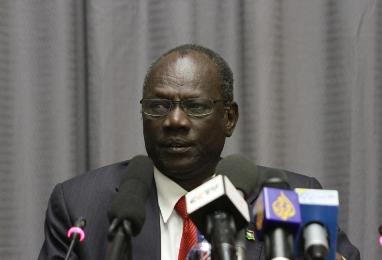South Sudan denies sacking army chief over performance
April 24, 2014 (JUBA) – South Sudan president’s decision to remove the army’s chief of staff was “normal” and had nothing to do with the way the military was handling the spiraling rebellion in the different parts of the country, a senior official said.

“It is purely a normal practice in any army,” the minister added.
He said it was within the president’s constitutional powers to make changes in any institutions of the government when necessary or take actions to benefit of nation.
Rebel spokesperson Brigadier General Lul Koang Ruai said the removal of General Mai and Kuol and their subsequent replacements mark the beginning of an “imminent bloodbath, escalation and regionalisation of the conflict”.
“By removing Generals Hoth and Kuol, Kiir has finally unplugged the last safety valve and glue that had partially kept together his faltering regime in the last four months,” he said in a statement extended to Sudan Tribune on Thursday.
President Salva Kiir on Wednesday removed Gen. James Hoth Mai and appointed Paul Malong Awan as the new chief of general staff. Also removed, in a separate presidential decree, was the head of military intelligence, Major Gen. Mac Paul Kuol.
The changes within the military, according to minister Lueth, caused unnecessary confusion and misunderstandings among the public in the new nation.
“These are just normal institutional changes and they should not be politicised,” he added. He dismissed claims that the changes were due to military setbacks witnessed in Unity, Upper Nile and Jonglei states where government troops are struggling to contain opposition forces loyal to former vice-president Riek Machar.
President Kiir on Wednesday accused the rebels of failing to honour the cessation of hostilities agreement, which they signed in January, saying the latter vowed to fight on until he stepped down or was removed from power.
(ST)
